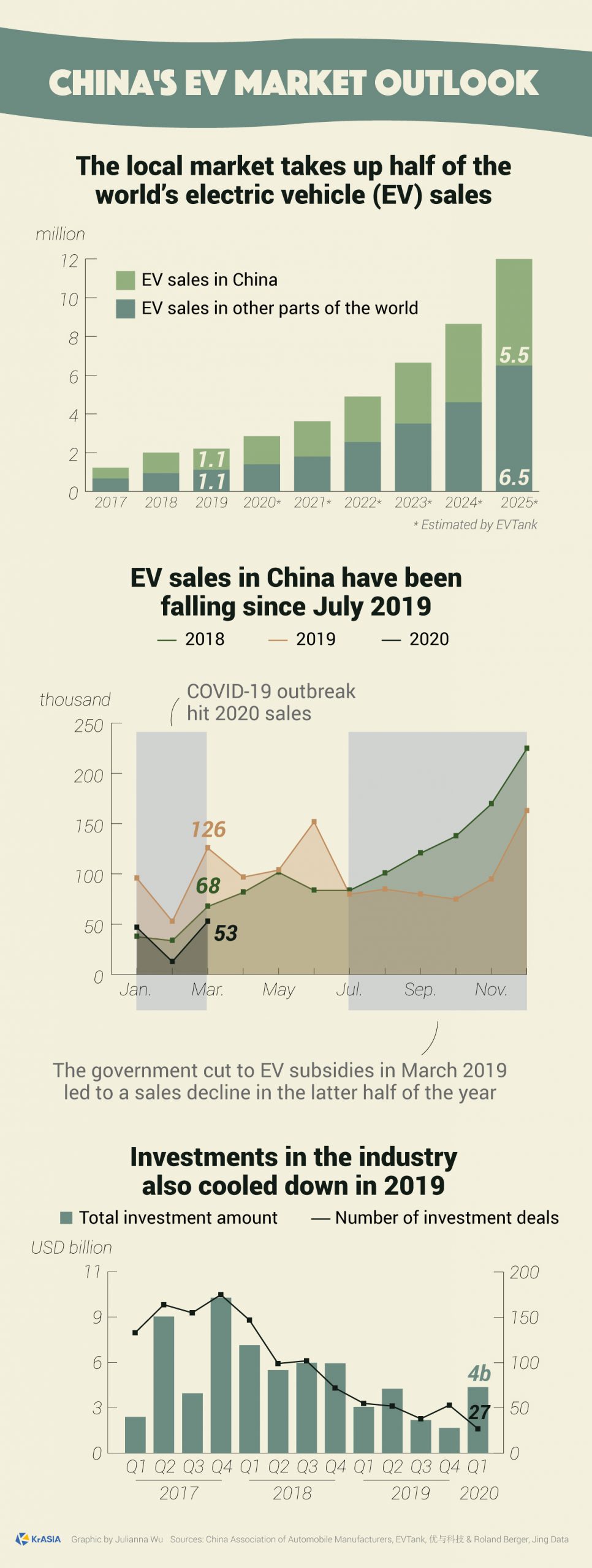The first trimester of the year has been an especially challenging period for China’s electric vehicles (EV) market. Numbers of EV manufactured and sold both plummeted by 58.5% and 55.6% respectively per data by the China Association of Automobile Manufacturers (CAAM), as the country’s stringent lockdown policy has not only slowed the spread of the coronavirus outbreak but also pent up China’s consumption, resulting in the lowest first-quarter of EV sales since 2018.
Pressured by declining sales and a gloomy outlook, BYD (HKG:01211), China’s biggest EV manufacturer by sales, announced on April 16 that it would issue RMB 2 billion (USD 282 million) worth of bonds to raise capital. The move came in the wake of its estimated financial results for Q1 2020, where the company forecasted its net profit to drop by up to 93.33% to RMB 50 million, compared to RMB 749.73 million obtained in the same period a year earlier. BYD’s sales halved to 61,000 new electric vehicles in the first quarter.
As a matter of fact, the Chinese EV market’s crisis has started long before the coronavirus outbreak. From the latter half of 2019, EV sales in the country have been dwindling due to tapering government subsidies, said CAAM.
Moreover, it’s noteworthy that the sales numbers do not necessarily reflect Chinese consumers’ interests in EVs, because more than half of the EV sales in previous years went to transportation companies, government departments, ride-hailing platforms, and other businesses.
With a public health crisis whose fallout is being felt on both the production and the consumption side, 2020 is set to become an even tougher year for Chinese EV makers. However, to save the tumbling industry, Chinese authorities have decided to extend subsidies for new energy vehicle (NEV) purchases by two additional years, KrASIA reported in early April.




Correction: The article has been updated on April 20 to change the descripion of Lixiang’s EV type from battery electric vehicles (BEV) to extended-range electric vehicle. We regret the error.
